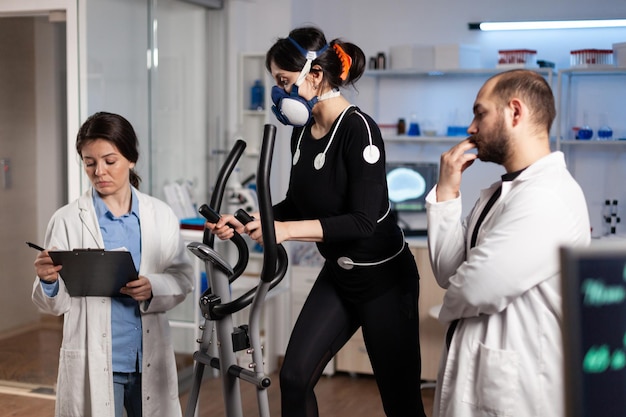
Illnesses and accidents can disrupt a person’s life, sometimes leading to disability. Thankfully, many bodily functions can be restored through medication, therapy, and exercise. Research has shown that exercise physiology can help people with disabilities manage daily challenges. With guidance from an expert exercise physiologist, individuals can follow a safe exercise program to enhance their mobility and independence.
Exercise physiology studies how specific physical activities positively impact the body. As you exercise, your body undergoes physiological, biomechanical, and biochemical changes. It’s crucial to engage in activities that benefit your body to avoid wasting time or risking injury.
Here’s how exercise physiology can help those with disabilities:
People with traumatic brain injuries (TBI) may experience weakness in certain body parts, making simple tasks difficult. Resistance and flexibility training can help them regain some functions and live more independently.
Chronic pain is a common issue for many with disabilities, potentially leading to emotional and mental health problems. Proper exercise can address pain without synthetic medications. Understanding the pain’s source and applying the right exercises, like yoga or Pilates, can stretch muscles, reduce tension, and alleviate pain. Exercise also releases endorphins, the body’s natural pain relievers, contributing to a holistic pain management program.
Conditions like spinal cord injuries and muscular dystrophy can cause muscle weakness and loss. Resistance training, using tools like resistance bands and weights, can target specific muscle groups, improving strength and endurance. Over time, individuals may notice increased energy, a more toned physique, and improved confidence and mental health.
Exercise can enhance muscle strength, promoting stability and balance. Regular practice can help those with mobility issues stand unaided, move more easily, and reach for items without assistance.
People with disabilities are at higher risk for secondary health conditions like cardiovascular diseases, diabetes, osteoporosis, depression, and obesity. Regular physical activity and proper exercise can prevent these issues, leading to a healthier future. Exercise improves heart and lung function, bone density, mobility, and weight management.
Working with an exercise physiologist on specific concerns can help prevent additional illnesses. Regular physical activity can boost mood, reduce stress, and increase confidence. Participating in group activities can also lead to new friendships and social connections. These intangible benefits significantly impact mental and emotional health, contributing to overall well-being and a better quality of life.
Living with a disability doesn’t have to be the end of the road. Instead of succumbing to self-pity, engaging in regular exercise can be a proactive step. Exercise physiology has proven beneficial for many with disabilities. With the help of a qualified exercise physiologist, you can achieve even more. So, why wait? Schedule a session with your physiologist and start enjoying the many benefits of exercise.












































